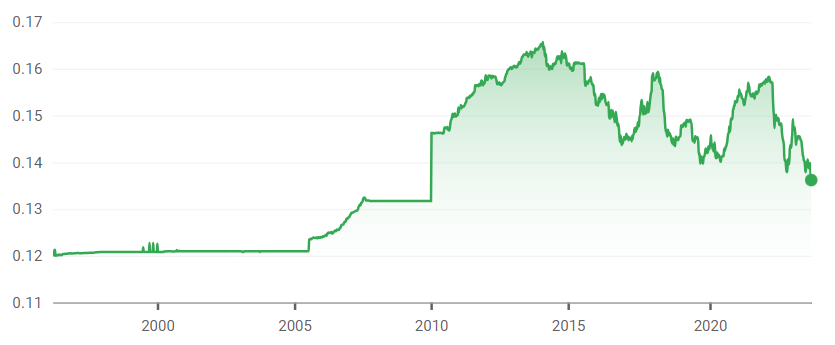Grayscale Inches Closer to a Bitcoin ETF, China Continues iPhone Pushback, and Elon Musk Threatens to Sue ADL.
Crypto asset manager Grayscale Investments clinched a significant win against the United States Securities and Exchange Commission (SEC) last week.
Grayscale’s Court Victory
Apple-China iPhone Restrictions
China Renminbi Hits 16 year low
FTC Likely to Sue Amazon
Elon Musk - ADL Conflict
Grayscale Triumphs But SEC Delays Bitcoin ETFs Decision
Crypto asset manager Grayscale Investments clinched a significant win against the United States Securities and Exchange Commission (SEC) last week.
The company's attempt to transform its OTC Grayscale Bitcoin Trust (GBTC) into a Bitcoin exchange traded fund (ETF) was given a boost when the Appeals Court Circuit Judge, Neomi Rao, ordered the SEC's rejection of the listing application to be overturned.
A Bitcoin ETF would generate more coverage for the crypto space, increase liquidity and allow a broader range of investors exposure to the space.
Rao pointed out the SEC's failure to explain its reasons for denying Grayscale's application. But this victory for Grayscale didn't necessarily translate into a broader win for the crypto community.
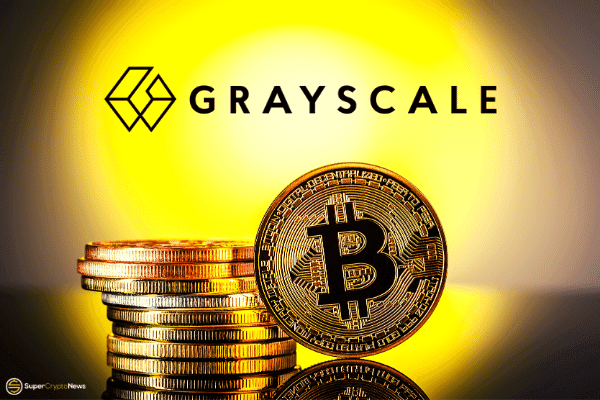
Gabriel Shapiro, Delphi Labs general counsel, expressed scepticism, implying that the SEC has a history of ignoring court decisions unfavourable to them.
Austin Campbell from Zero Knowledge Consulting emphasized the challenges companies face in opposing the SEC, particularly the financial strain of legal battles.
The SEC also recently delayed its verdict on six applications for spot Bitcoin ETFs. The SEC now has a new deadline in mid-October to finalize its stance on these investment tools.
China Expands iPhone Restrictions Among State Employees
China is intensifying its clampdown on the use of iPhones by government staff, with central government agencies being instructed to halt their use of Apple's devices.
This move builds on previous US-China restrictions, reflecting increasing tensions between the two powers and posing increasing challenges for US companies in China, many of which depend on China for both sales and production.
While at least three government bodies have received this directive, the extent of its enforcement remains uncertain.
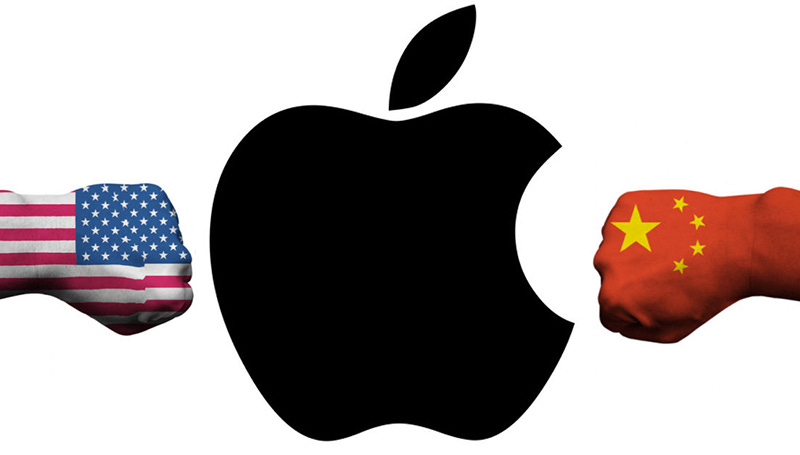
Some employees report continued iPhone use, unaware of any bans, while others have been cautioned about the potential consequences for using an iPhone.
Certain senior officials transitioned to domestic brands like Huawei two years ago. This switch was driven, in part, by Apple's stringent privacy measures, which posed hurdles for anti-corruption units attempting to inspect suspects' phones.
Apple's stock witnessed a downturn, dropping over 3% following the initial reports of the ban. Subsequent reports suggest plans to expand this prohibition to state-run firms and agencies.
Given that China accounts for almost a fifth of Apple's revenue, there's potential for this move to dampen Apple's sales momentum in the country.
Apple has, however, seen robust sales in China, partly attributed to U.S. sanctions on Huawei, positioning it as a top premium smartphone brand in the region.
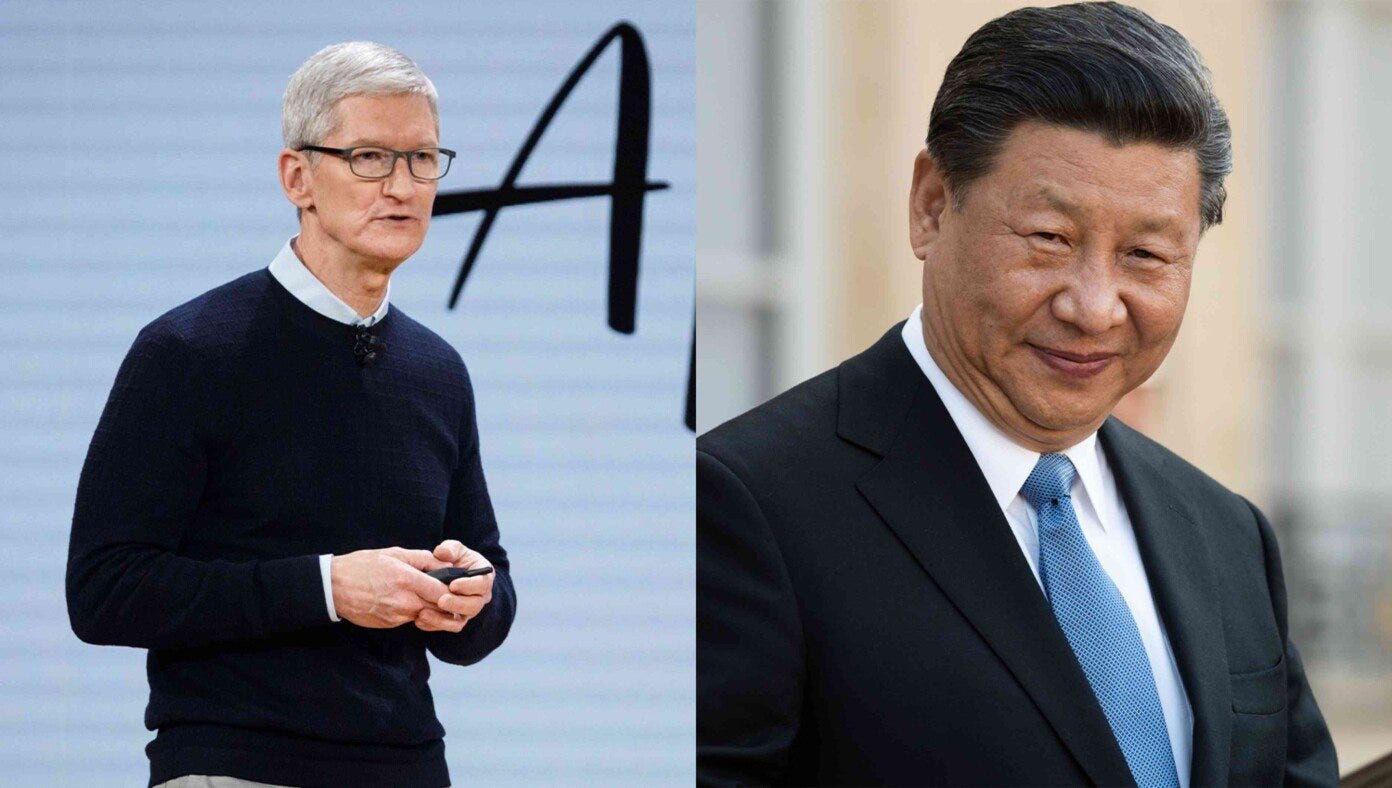
This focus on promoting domestic tech products underscores the heightened emphasis both Beijing and Washington place on technology as a matter of national security.
Efforts to replace foreign IT products with local alternatives in government and state-owned enterprises have gained traction, particularly after directives aimed at completing such replacements in vital IT infrastructure by 2027.
With local competitors like Xiaomi, Oppo, Vivo, and the recent entry of Huawei's domestically-developed Mate 60 Pro, Apple faces mounting challenges in one of its key markets.
China's Renminbi Reaches 16-Year Low Following Export Decline in August
In other China related news and in a concerning economic trend, China’s renminbi has fallen to its lowest against the US dollar since 2007.
The nation has been grappling with the continuous contraction in exports for the fourth month underscoring the challenges faced by the manufacturing sector in the world's second-largest economy.
Official data reveals an 8.8% drop in exports in August compared to last year. Although this figure surpasses predictions of a 9.2% fall and shows improvement from July's 14.5% decrease, it underscores persisting economic frailty.
While China's trade supported the economy during pandemic-induced lockdowns, exporters have since faced challenges due to decreased purchases spurred by global inflation.
The renminbi has experienced a 6% depreciation against the dollar this year. Factors such as underwhelming economic figures and a robust US dollar have further strained the exchange rate.
Observers like Ken Cheung, the chief Asia foreign exchange strategist at Mizuho Bank, are keenly awaiting the next moves by the People’s Bank of China in response to these developments.
Amidst concerns that the post-pandemic economic revival is faltering, Beijing has avoided introducing comprehensive stimulus measures, resulting in a mere 0.8% growth in Q2.

Recent measures to rejuvenate a stagnant property market were rolled out by China. However, experts argue that more initiatives might be required to achieve the government's annual 5% growth target, already a historically low figure.
Amazon Anticipates FTC Lawsuit on Antitrust Grounds
According to reports from The Wall Street Journal and Bloomberg, the Federal Trade Commission (FTC) is gearing up to file an antitrust lawsuit against Amazon.
If the FTC moves forward and secures a court victory, Amazon, a $1.4 trillion-dollar company, could face a possible breakup.
Lina Khan, the youngest-ever FTC chair, has been closely linked with Amazon due to her influential 2017 Yale Law Journal article - Amazon’s Antitrust Paradox.

The article emphasized that current antitrust law applications don't sufficiently address the dominance of tech giants like Amazon in the digital realm.
After her appointment as FTC chair, Amazon sought her recusal from antitrust probes, citing prior criticisms of its business model. A similar request by Meta was previously dismissed in a different case.
During Khan's tenure, the FTC has scrutinized various tech giants, notably opposing Meta’s intended purchase of virtual reality app maker, Within Unlimited, and raising issues with Amazon's Prime service.
Insiders have long predicted a more direct challenge to Amazon's potential monopoly.
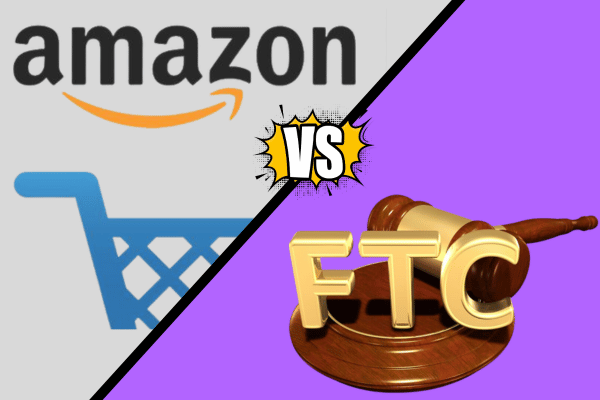
On August 15, the FTC convened a "last rites" meeting with Amazon, a typical precursor to commissioners deciding on filing a lawsuit to give companies an opportunity to present their viewpoint.
Contrary to norm, no settlements or solutions were broached during this meeting, as per insider information.
The expected lawsuit will likely probe central components of Amazon’s retail marketplace, such as its logistics program "Fulfillment by Amazon" and the pricing mechanisms for third-party sellers on its platform.
Both the FTC and Amazon declined to comment on the matter.
Elon Musk Accuses ADL of Reducing X's Ad Revenue, Considers Legal Action
Elon Musk is contemplating legal action against the Anti-Defamation League (ADL), an organization that claims it “Fights Antisemitism and Protects the Jewish Community”.
Musk believes that the 60% decline in X’s US advertising revenue is largely due to the ADL's claims of increased hate speech on the platform.
In a post on X, Musk remarked that since his acquisition in October 2022, the ADL has accused both him and X of anti-Semitism.
While the ADL refrains from commenting on legal threats, they recently spoke to X CEO Linda Yaccarino.
Yaccarino expressed gratitude to ADL CEO Jonathan Greenblatt for a constructive discussion on the platform, emphasizing the value of positive intentions and openness.
Apparently taking a different stance from Yaccarino, Musk has engaged with numerous posts critiquing the ADL, giving rise to a #BanTheADL campaign.
The ADL responded, mentioning this isn't their first encounter with such attacks and attributing the campaign to various hate groups.
Reports from organizations like the ADL and the Center for Countering Digital Hate (CCDH) suggest hate speech on X has escalated since Musk's takeover.
CCDH data indicates a significant surge in slurs, while the ADL noticed an uptick in anti-Semitic content and a reduction in content moderation.
Musk refuted these findings, emphasizing that "hate speech impressions" have decreased since he took ownership.
But this didn’t stop certain brands, like Adobe and Gilead Sciences, from suspending their X ad campaigns last month.



